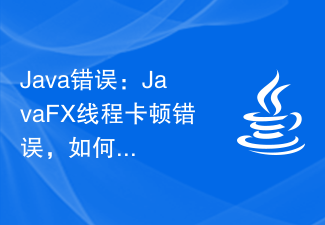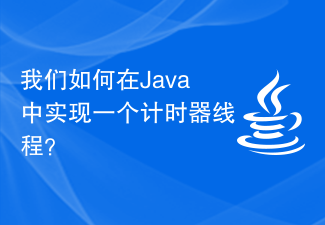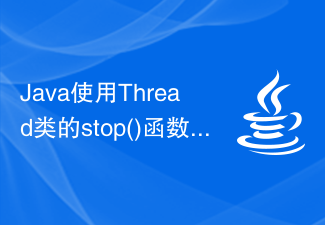//-------------------------------------------------------------------- // // CCPoolManager // //-------------------------------------------------------------------- /////【diff - begin】- by layne////// CCPoolManager* CCPoolManager::shared
//--------------------------------------------------------------------
//
// CCPoolManager
//
//--------------------------------------------------------------------
/////【diff - begin】- by layne//////
CCPoolManager* CCPoolManager::sharedPoolManager()
{
if (s_pPoolManager == NULL)
{
s_pPoolManager = new CCPoolManager();
}
return s_pPoolManager;
}
void CCPoolManager::purgePoolManager()
{
CC_SAFE_DELETE(s_pPoolManager);
}
CCPoolManager::CCPoolManager()
{
// m_pReleasePoolStack = new CCArray();
// m_pReleasePoolStack->init();
// m_pCurReleasePool = 0;
m_pReleasePoolMultiStack = new CCDictionary();
}
CCPoolManager::~CCPoolManager()
{
// finalize();
// // we only release the last autorelease pool here
// m_pCurReleasePool = 0;
// m_pReleasePoolStack->removeObjectAtIndex(0);
//
// CC_SAFE_DELETE(m_pReleasePoolStack);
finalize();
CC_SAFE_DELETE(m_pReleasePoolMultiStack);
}
void CCPoolManager::finalize()
{
if(m_pReleasePoolMultiStack->count() > 0)
{
//CCAutoreleasePool* pReleasePool;
CCObject* pkey = NULL;
CCARRAY_FOREACH(m_pReleasePoolMultiStack->allKeys(), pkey)
{
if(!pkey)
break;
CCInteger *key = (CCInteger*)pkey;
CCArray *poolStack = (CCArray *)m_pReleasePoolMultiStack->objectForKey(key->getValue());
CCObject* pObj = NULL;
CCARRAY_FOREACH(poolStack, pObj)
{
if(!pObj)
break;
CCAutoreleasePool* pPool = (CCAutoreleasePool*)pObj;
pPool->clear();
}
}
}
}
void CCPoolManager::push()
{
// CCAutoreleasePool* pPool = new CCAutoreleasePool(); //ref = 1
// m_pCurReleasePool = pPool;
//
// m_pReleasePoolStack->addObject(pPool); //ref = 2
//
// pPool->release(); //ref = 1
pthread_mutex_lock(&m_mutex);
CCArray* pCurReleasePoolStack = getCurReleasePoolStack();
CCAutoreleasePool* pPool = new CCAutoreleasePool(); //ref = 1
pCurReleasePoolStack->addObject(pPool); //ref = 2
pPool->release(); //ref = 1
pthread_mutex_unlock(&m_mutex);
}
void CCPoolManager::pop()
{
// if (! m_pCurReleasePool)
// {
// return;
// }
//
// int nCount = m_pReleasePoolStack->count();
//
// m_pCurReleasePool->clear();
//
// if(nCount > 1)
// {
// m_pReleasePoolStack->removeObjectAtIndex(nCount-1);
//
// // if(nCount > 1)
// // {
// // m_pCurReleasePool = m_pReleasePoolStack->objectAtIndex(nCount - 2);
// // return;
// // }
// m_pCurReleasePool = (CCAutoreleasePool*)m_pReleasePoolStack->objectAtIndex(nCount - 2);
// }
//
// /*m_pCurReleasePool = NULL;*/
pthread_mutex_lock(&m_mutex);
CCArray* pCurReleasePoolStack = getCurReleasePoolStack();
CCAutoreleasePool* pCurReleasePool = getCurReleasePool();
if (pCurReleasePoolStack && pCurReleasePool)
{
int nCount = pCurReleasePoolStack->count();
pCurReleasePool->clear();
if(nCount > 1)
{
pCurReleasePoolStack->removeObject(pCurReleasePool);
}
}
pthread_mutex_unlock(&m_mutex);
}
void CCPoolManager::removeObject(CCObject* pObject)
{
// CCAssert(m_pCurReleasePool, "current auto release pool should not be null");
//
// m_pCurReleasePool->removeObject(pObject);
pthread_mutex_lock(&m_mutex);
CCAutoreleasePool* pCurReleasePool = getCurReleasePool();
CCAssert(pCurReleasePool, "current auto release pool should not be null");
pCurReleasePool->removeObject(pObject);
pthread_mutex_unlock(&m_mutex);
}
void CCPoolManager::addObject(CCObject* pObject)
{
// getCurReleasePool()->addObject(pObject);
pthread_mutex_lock(&m_mutex);
CCAutoreleasePool* pCurReleasePool = getCurReleasePool(true);
CCAssert(pCurReleasePool, "current auto release pool should not be null");
pCurReleasePool->addObject(pObject);
pthread_mutex_unlock(&m_mutex);
}
CCArray* CCPoolManager::getCurReleasePoolStack()
{
CCArray* pPoolStack = NULL;
pthread_t tid = pthread_self();
if(m_pReleasePoolMultiStack->count() > 0)
{
pPoolStack = (CCArray*)m_pReleasePoolMultiStack->objectForKey((int)tid);
}
if (!pPoolStack) {
pPoolStack = new CCArray();
m_pReleasePoolMultiStack->setObject(pPoolStack, (int)tid);
pPoolStack->release();
}
return pPoolStack;
}
CCAutoreleasePool* CCPoolManager::getCurReleasePool(bool autoCreate)
{
// if(!m_pCurReleasePool)
// {
// push();
// }
//
// CCAssert(m_pCurReleasePool, "current auto release pool should not be null");
//
// return m_pCurReleasePool;
CCAutoreleasePool* pReleasePool = NULL;
CCArray* pPoolStack = getCurReleasePoolStack();
if(pPoolStack->count() > 0)
{
pReleasePool = (CCAutoreleasePool*)pPoolStack->lastObject();
}
if (!pReleasePool && autoCreate) {
CCAutoreleasePool* pPool = new CCAutoreleasePool(); //ref = 1
pPoolStack->addObject(pPool); //ref = 2
pPool->release(); //ref = 1
pReleasePool = pPool;
}
return pReleasePool;
}
/////【diff - end】- by layne//////
 8核16线程是什么意思?Feb 02, 2023 am 11:26 AM
8核16线程是什么意思?Feb 02, 2023 am 11:26 AM8核是指CPU有8颗物理核心,16线程是指CPU最多同时可以有16个线程处理任务。核心数和线程数是电脑CPU的重要性能指标,CPU的核心数越高处理速度就越高;线程数越多越有利于同时运行多个程序,因为线程数等同于在某个瞬间CPU能同时并行处理的任务数。多线程可最大限度地实现宽发射、乱序的超标量处理,提高处理器运算部件的利用率,缓和由于数据相关或Cache未命中带来的访问内存延时。
 Java错误:JavaFX线程卡顿错误,如何处理和避免Jun 24, 2023 pm 05:52 PM
Java错误:JavaFX线程卡顿错误,如何处理和避免Jun 24, 2023 pm 05:52 PM在进行JavaFX应用程序开发的过程中,我们常常会遇到JavaFX线程卡顿错误。这种错误的严重程度不同,可能会对程序的稳定性和性能产生不利的影响。为了保证程序的正常运行,我们需要了解JavaFX线程卡顿错误的原因和解决方法,以及如何预防这种错误的发生。一、JavaFX线程卡顿错误的原因JavaFX是一个多线程的UI应用程序框架,它允许程序在后台线程中执行长时
 什么是程序运行时指令流的最小单位Aug 23, 2022 pm 02:16 PM
什么是程序运行时指令流的最小单位Aug 23, 2022 pm 02:16 PM“线程”是程序运行时指令流的最小单位。进程是指一个具有一定独立功能的程序,而线程是进程的一部分,描述指令流执行状态;线程是进程中的指令执行流的最小单位,是CPU调度的基本单位。一个线程是一个任务(一个程序段)的一次执行过程;线程不占有内存空间,它包括在进程的内存空间中。在同一个进程内,多个线程共享进程的资源;一个进程至少有一个线程。
 Go语言中线程和进程的区别解析Apr 03, 2024 pm 01:39 PM
Go语言中线程和进程的区别解析Apr 03, 2024 pm 01:39 PMGo语言中的进程和线程:进程:独立运行的程序实例,拥有自己的资源和地址空间。线程:进程内的执行单元,共享进程资源和地址空间。特点:进程:开销大,隔离性好,独立调度。线程:开销小,共享资源,内部调度。实战案例:进程:隔离长时间运行的任务。线程:并发处理大量数据。
 go语言中协程与线程的区别是什么Feb 02, 2023 pm 06:10 PM
go语言中协程与线程的区别是什么Feb 02, 2023 pm 06:10 PM区别:1、一个线程可以多个协程,一个进程也可以单独拥有多个协程;2、线程是同步机制,而协程则是异步;3、协程能保留上一次调用时的状态,线程不行;4、线程是抢占式,协程是非抢占式的;5、线程是被分割的CPU资源,协程是组织好的代码流程,协程需要线程来承载运行。
 我们如何在Java中实现一个计时器线程?Aug 30, 2023 pm 02:49 PM
我们如何在Java中实现一个计时器线程?Aug 30, 2023 pm 02:49 PMTimer类安排任务在给定时间运行一次或重复。它还可以作为守护线程在后台运行。要将Timer与守护线程关联起来,需要使用一个带有布尔值的构造函数。计时器以固定延迟和固定速率安排任务。在固定延迟下,如果任何一个执行被系统GC延迟,则其他执行也会延迟,并且每次执行都会延迟对应于之前的执行。在固定速率下,如果任何执行被系统GC延迟,则连续发生2-3次执行以覆盖与第一次执行开始时间相对应的固定速率。Timer类提供了cancel()方法来取消计时器。当调用该方法时,定时器终止。Timer类仅执行实现Ti
 Java使用Thread类的stop()函数强制终止线程的执行Jul 26, 2023 am 09:28 AM
Java使用Thread类的stop()函数强制终止线程的执行Jul 26, 2023 am 09:28 AMJava使用Thread类的stop()函数强制终止线程的执行在Java多线程编程中,有时候我们需要强制终止一个正在执行的线程。Java提供了Thread类的stop()函数来实现线程的强制终止。本文将介绍stop()函数的用法,并提供代码示例来说明。在介绍stop()函数之前,我们先了解一下Thread类的几个常用方法:start():启动线程,使线程进入
 Microsoft计划在Windows上的Outlook经典应用程序中引入AI驱动的CopilotOct 19, 2023 pm 11:13 PM
Microsoft计划在Windows上的Outlook经典应用程序中引入AI驱动的CopilotOct 19, 2023 pm 11:13 PMMicrosoft显然不会将其强大的人工智能支持的Copilot工具保留为新应用程序的独家功能。现在,该公司刚刚宣布计划在Windows上的Outlook经典应用程序中引入Copilot。正如其365路线图网站上发布的那样,预览将于明年<>月开始,直到<>月在当前频道的桌面上在全球范围内推出。Copilot是一种生产力工具,它使用大型语言模型(LLM)来帮助用户完成编写电子邮件、汇总文档和翻译语言等任务。它的主要功能之一是它能够总结电子邮件


핫 AI 도구

Undresser.AI Undress
사실적인 누드 사진을 만들기 위한 AI 기반 앱

AI Clothes Remover
사진에서 옷을 제거하는 온라인 AI 도구입니다.

Undress AI Tool
무료로 이미지를 벗다

Clothoff.io
AI 옷 제거제

AI Hentai Generator
AI Hentai를 무료로 생성하십시오.

인기 기사

뜨거운 도구

드림위버 CS6
시각적 웹 개발 도구

스튜디오 13.0.1 보내기
강력한 PHP 통합 개발 환경

Eclipse용 SAP NetWeaver 서버 어댑터
Eclipse를 SAP NetWeaver 애플리케이션 서버와 통합합니다.

mPDF
mPDF는 UTF-8로 인코딩된 HTML에서 PDF 파일을 생성할 수 있는 PHP 라이브러리입니다. 원저자인 Ian Back은 자신의 웹 사이트에서 "즉시" PDF 파일을 출력하고 다양한 언어를 처리하기 위해 mPDF를 작성했습니다. HTML2FPDF와 같은 원본 스크립트보다 유니코드 글꼴을 사용할 때 속도가 느리고 더 큰 파일을 생성하지만 CSS 스타일 등을 지원하고 많은 개선 사항이 있습니다. RTL(아랍어, 히브리어), CJK(중국어, 일본어, 한국어)를 포함한 거의 모든 언어를 지원합니다. 중첩된 블록 수준 요소(예: P, DIV)를 지원합니다.

Atom Editor Mac 버전 다운로드
가장 인기 있는 오픈 소스 편집기






